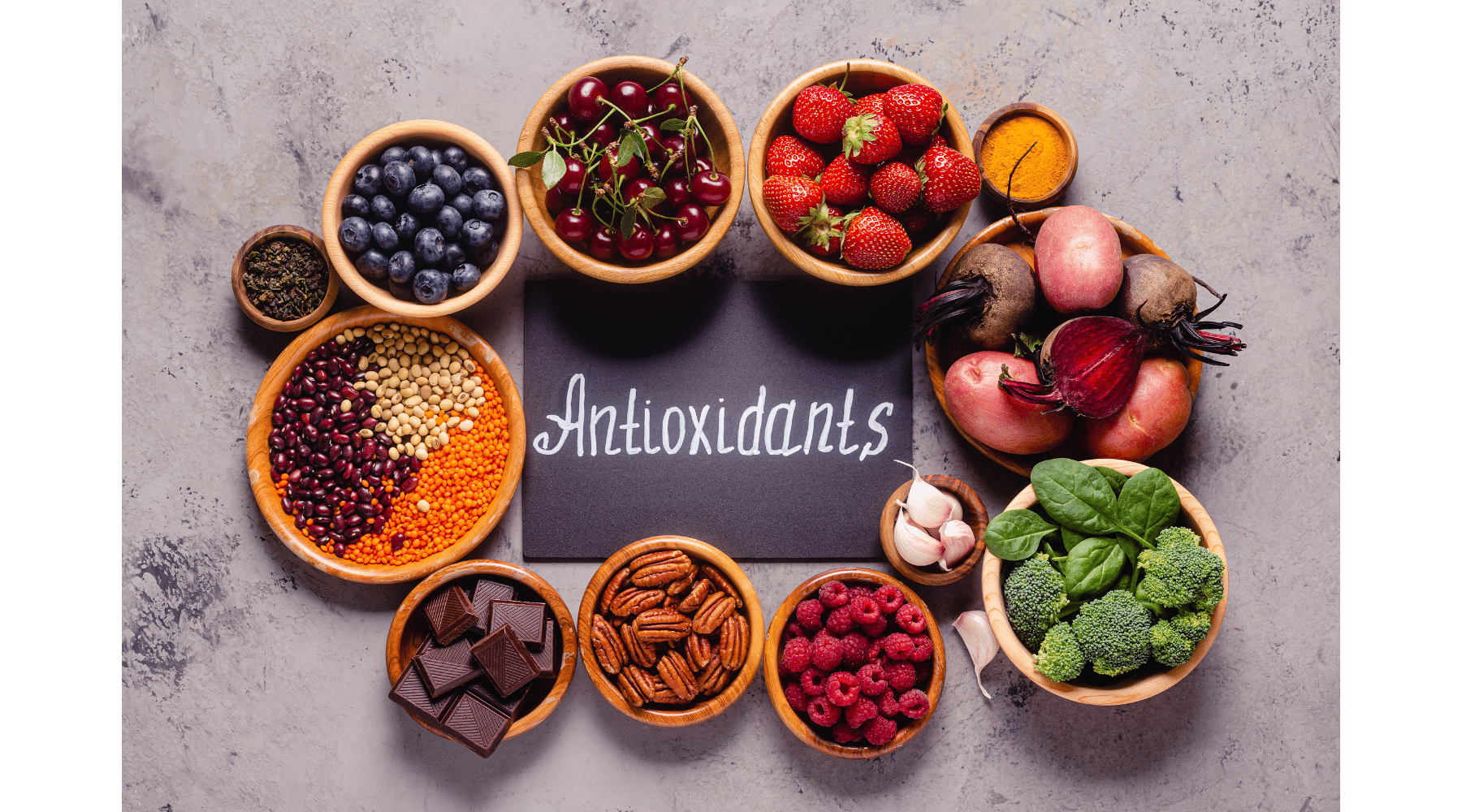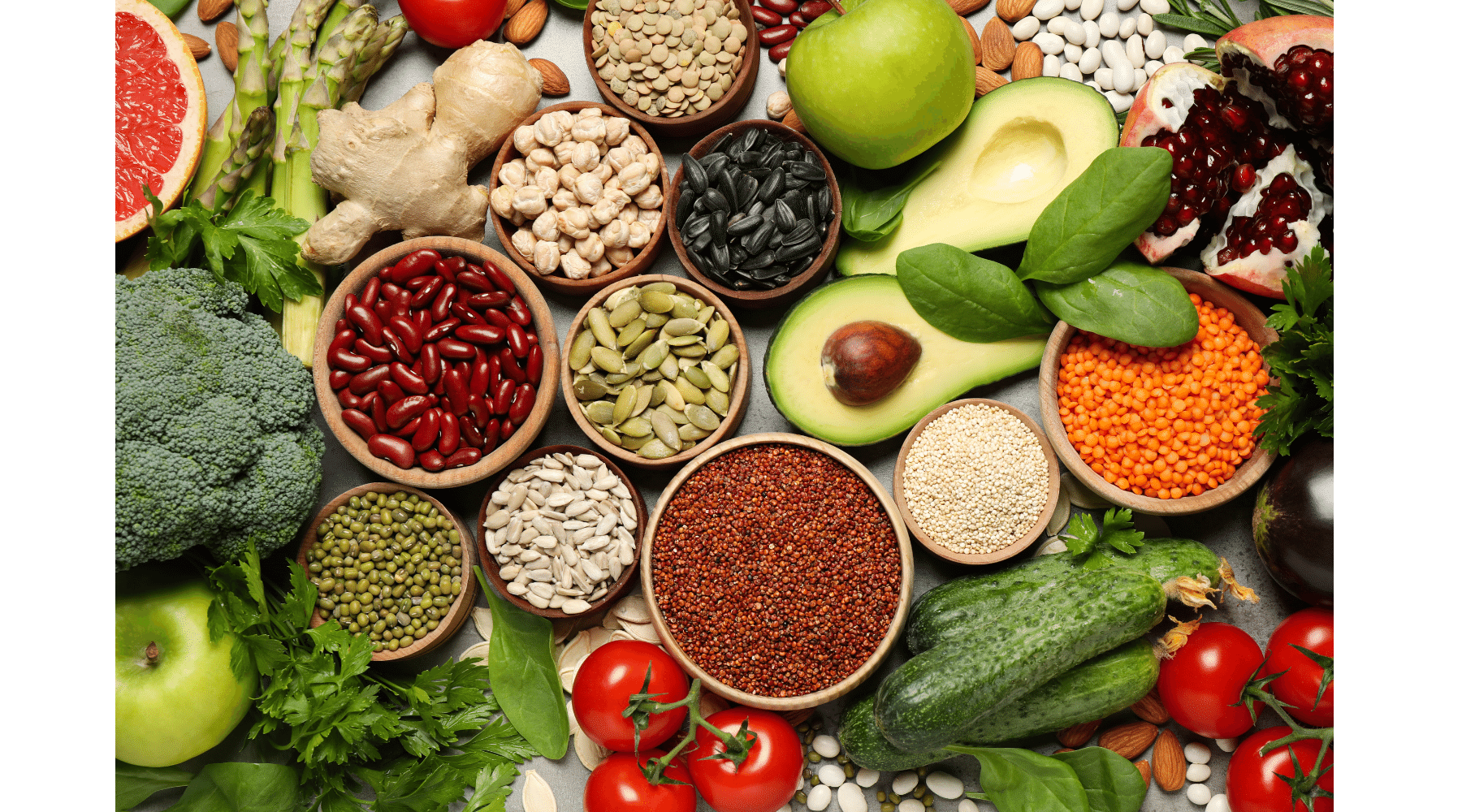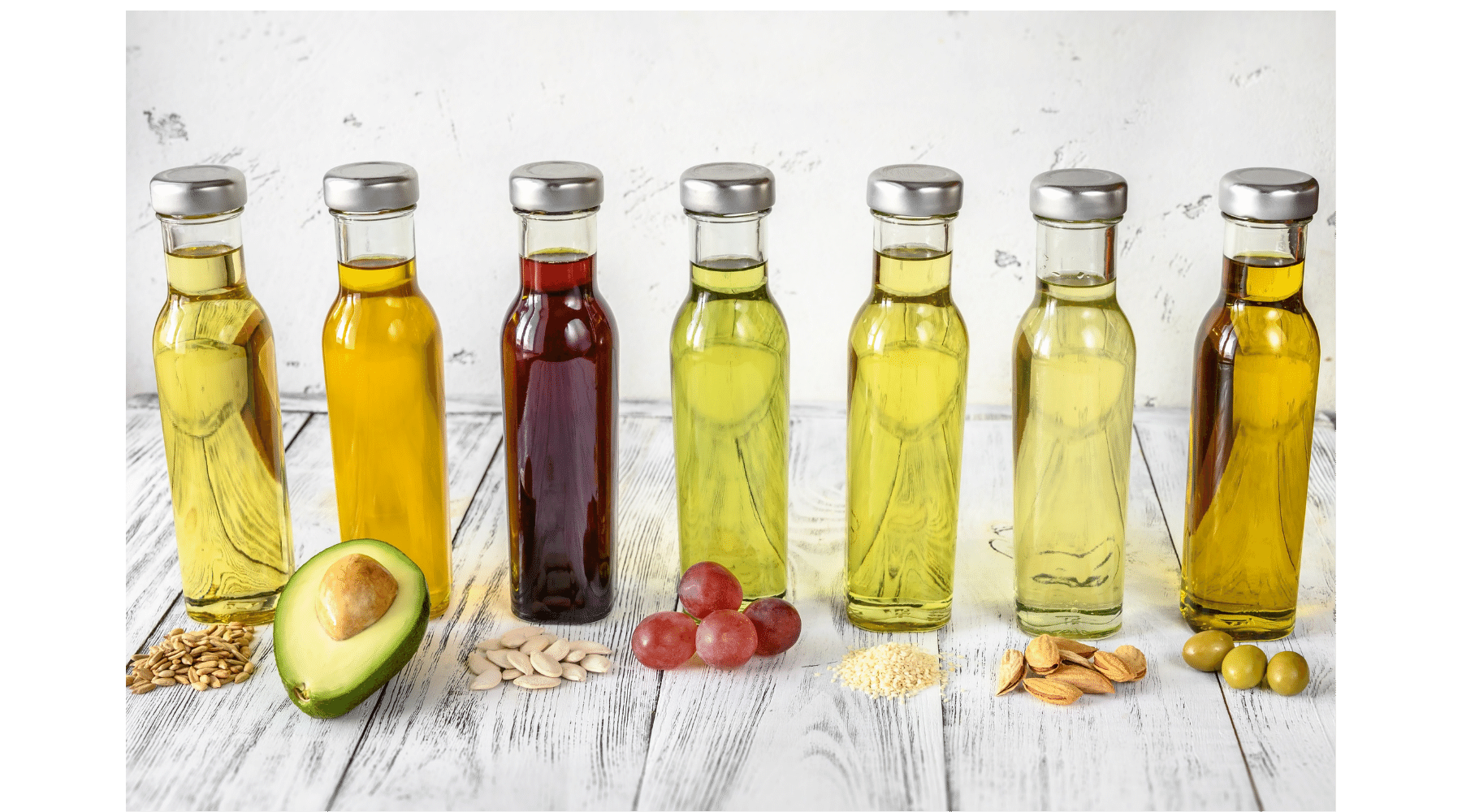
What Are Antioxidants and Why Do You Need Them?
Antioxidants are like your body's personal superheroes against free radicals, the villains that can cause disease and damage to your cells. These powerful substances can be found in a variety of foods, including fruits, vegetables, and supplements. Research and medical studies have shown that a diet high in antioxidants, such as beta-carotene and vitamin C, can help prevent cancer and improve overall health. So, if you want to be a superhero too, load up on those antioxidant-rich foods!
What Are Antioxidants?
Antioxidants are substances that help counteract the damage caused by free radicals in our bodies. Free radicals are unstable molecules that can harm cells and contribute to aging and diseases such as cancer, diabetes, and heart disease. Antioxidants neutralize free radicals by donating an electron, which stabilizes them and prevents them from causing further damage. There are several types of antioxidants, including vitamins C and E, beta-carotene, and selenium, which can be found in fruits, vegetables, nuts, and seeds. While our bodies produce some antioxidants naturally, we also need to get them from our diet to maintain optimal health. In this blog, we'll explore the benefits of adding antioxidants to your diet, common sources of natural antioxidants, and the best way to maximize your antioxidant intake. So, buckle up, and let's dive into the wonderful world of antioxidants!
How Do Antioxidants Work?
Now that we know what antioxidants are, let's dive into how they actually work. Antioxidants are like superheroes in our body, fighting against the villains known as free radicals. Free radicals are unstable molecules that can damage cells and contribute to aging and diseases like cancer. When we consume antioxidants, they neutralize the free radicals by donating an electron, which stabilizes the molecule and prevents it from causing harm. Think of it like a game of hot potato, where the antioxidant is the cool cucumber passing off an electron to the hot potato (free radical) to cool it down. This process helps to protect our cells, boost our immune system, and promote overall health. So, if you want to be your own superhero, make sure to incorporate more antioxidants into your diet.
Benefits of Adding Antioxidants to Your Diet
Adding antioxidants to your diet can have a multitude of benefits. These powerful substances protect your body from damage caused by free radicals, which can lead to a variety of health problems. In fact, studies have shown that a diet rich in antioxidants may help prevent chronic diseases such as cancer, heart disease, and Alzheimer's. Antioxidants also have anti-inflammatory properties, which can help reduce the risk of chronic inflammation. Additionally, they can help improve skin health, boost the immune system, and promote healthy aging. So, if you're looking to take your health to the next level, consider incorporating more antioxidant-rich foods into your diet. Your body will thank you!
Common Sources of Natural Antioxidants
Now that we know what antioxidants are and why they're essential for our body, let's dive into the sources of natural antioxidants. There are plenty of fruits and vegetables that are rich in antioxidants, including blueberries, strawberries, raspberries, blackberries, pomegranates, and cherries. These colorful berries are packed with flavonoids, which are potent antioxidants that help to prevent cell damage. Other excellent sources of antioxidants include leafy greens like kale, spinach, and broccoli, as well as nuts and seeds like almonds, walnuts, chia seeds, and flaxseeds. Even spices like cinnamon, turmeric, and ginger contain antioxidants, making them a fantastic addition to your diet. Remember, the key is to eat a variety of colorful fruits and vegetables every day to ensure that you're getting a wide range of antioxidants. By incorporating these antioxidant-rich foods into your diet, you can help to protect your body against harmful free radicals and reduce the risk of chronic diseases.
The Best Way to Get the Most Out Of Your Antioxidant Intake
Now that you know the importance of antioxidants and where to find them, you may be wondering how to get the most out of your antioxidant intake. The key is to consume a variety of different types of antioxidants, as each one has its own unique benefits. Aim to eat a rainbow of colorful fruits and vegetables, as each color indicates a different type of antioxidant. Berries, leafy greens, nuts, and seeds are also great sources of antioxidants. Additionally, it's important to consume antioxidants in their natural form. While supplements can be helpful in certain cases, getting benefits directly from whole foods is still recommended. Finally, make sure to pair your antioxidant-rich foods with healthy fats, as this can help increase absorption. Add some avocado to your salad or snack on some almonds with your berries to get the most out of your antioxidant intake. By following these tips, you'll be able to maximize the benefits of antioxidants and keep your body healthy and happy.
Conclusion: Why You Need to Incorporate More Anti-Oxidants into Your Diet
Now that we've explored the ins and outs of antioxidants, it's clear that incorporating more of these powerful nutrients into your diet is crucial for optimal health. From reducing inflammation to fighting off free radicals, antioxidants have a plethora of benefits that simply can't be ignored. Fortunately, there are plenty of delicious and natural sources of antioxidants to choose from, so there's no excuse not to up your intake. Whether you opt for dark leafy greens, berries, nuts, or legumes, your body will thank you for the extra boost of nutrients. And if you're still not convinced, just remember: antioxidants are like the superheroes of the nutrient world, swooping in to save the day and keep your body in tip-top shape. So go ahead and indulge in that extra serving of blueberries or handful of spinach - your health will thank you!
People also ask
What foods are high in antioxidants?
Antioxidants are substances that protect the body from damage caused by harmful molecules known as free radicals. These molecules can damage cells and contribute to the development of chronic diseases such as cancer, heart disease, and Alzheimer's disease. Luckily, a variety of foods are rich in antioxidants. Berries such as blueberries, raspberries, and strawberries are high in antioxidants. These fruits contain flavonoids, which have been shown to reduce inflammation and improve cognitive function. Dark chocolate is also high in antioxidants. The cocoa in dark chocolate contains flavonoids that can help lower blood pressure and improve heart health. Nuts such as almonds, walnuts, and pecans are high in antioxidants. They also contain healthy fats that can help reduce inflammation and improve heart health. Leafy green vegetables like spinach, kale, and collard greens are rich in antioxidants such as vitamin C and beta-carotene. These vegetables also contain lutein and zeaxanthin which promote eye health. Beans like black beans, kidney beans, and pinto beans are packed with antioxidants. They also provide fiber which can promote digestive health. In conclusion, incorporating antioxidant-rich foods into your diet is an easy way to boost your overall health. Whether it's adding berries to your morning oatmeal or snacking on nuts throughout the day - there are plenty of delicious options to choose from!
What are the 4 major antioxidants?
Antioxidants are molecules that protect our cells from the damage caused by free radicals. Free radicals are unstable molecules that can cause oxidative stress, which is linked to a variety of health problems, including cancer and heart disease. There are several different types of antioxidants, but four of the major ones include: 1. Vitamin C: This water-soluble vitamin is found in many fruits and vegetables, including oranges, kiwi fruit, bell peppers, and broccoli. Vitamin C helps to protect cells from damage caused by free radicals and also supports immune function. 2. Vitamin E: This fat-soluble vitamin is found in nuts, seeds, and vegetable oils such as sunflower oil. It helps to protect cell membranes from oxidative damage. 3. Beta-carotene: This antioxidant is found in brightly colored fruits and vegetables such as carrots, sweet potatoes, and spinach. It can be converted into vitamin A in the body and helps to protect cells from damage caused by free radicals. 4. Selenium: This mineral is found in nuts, seafood, and whole grains. It works with other antioxidants to help protect cells from oxidative stress. Consuming a diet rich in these antioxidants can help to reduce the risk of chronic diseases associated with oxidative stress. However, it's important to note that supplements should not be relied upon as a substitute for a healthy diet rich in fruits and vegetables.
What antioxidant means?
Antioxidants are substances that protect cells from damage caused by free radicals. Free radicals are unstable molecules that can cause harm to cells and contribute to the development of diseases such as cancer, heart disease, and Alzheimer's disease. Antioxidants work by neutralizing these free radicals, preventing them from causing damage. There are many different types of antioxidants, including vitamins like vitamin C and vitamin E, minerals like selenium and zinc, and plant compounds called flavonoids. These substances can be found in a variety of foods such as fruits, vegetables, nuts, and whole grains. Research has shown that consuming foods high in antioxidants may have numerous health benefits. For example, some studies suggest that a diet rich in antioxidants may help reduce the risk of certain cancers, improve heart health by lowering cholesterol levels and reducing inflammation, and even protect against cognitive decline in older adults. While it is important to consume a variety of antioxidant-rich foods as part of a healthy diet, it is also important not to rely solely on supplements for antioxidant intake. Research has not yet shown that antioxidant supplements provide the same health benefits as consuming these nutrients through food sources.
Which are the 2 most important antioxidants?
Antioxidants are substances that protect the body from oxidative stress, which is caused by free radicals that can damage cells and contribute to various diseases. There are many types of antioxidants, but two of the most important ones are vitamin C and vitamin E. Vitamin C, also known as ascorbic acid, is a water-soluble antioxidant that plays a crucial role in maintaining overall health. It helps to boost the immune system, promote collagen production for healthy skin, and can even help to reduce the risk of chronic diseases such as heart disease and cancer. Vitamin C is found in many fruits and vegetables, including citrus fruits, berries, kiwi fruit, tomatoes, peppers and broccoli. Vitamin E is a fat-soluble antioxidant that protects cell membranes from damage caused by free radicals. It also helps to maintain healthy skin and eyesight. Vitamin E can be found in nuts such as almonds and peanuts, seeds like sunflower seeds or pumpkin seeds, vegetable oils (sunflower oil) or green leafy vegetables like spinach. Both vitamins work together to protect our body against free radical damage and support overall health. Therefore it's important to have a balanced diet with plenty of fruits and vegetables so you get enough vitamins C & E daily. In supplement form these vitamins can be taken together for maximum benefits.


